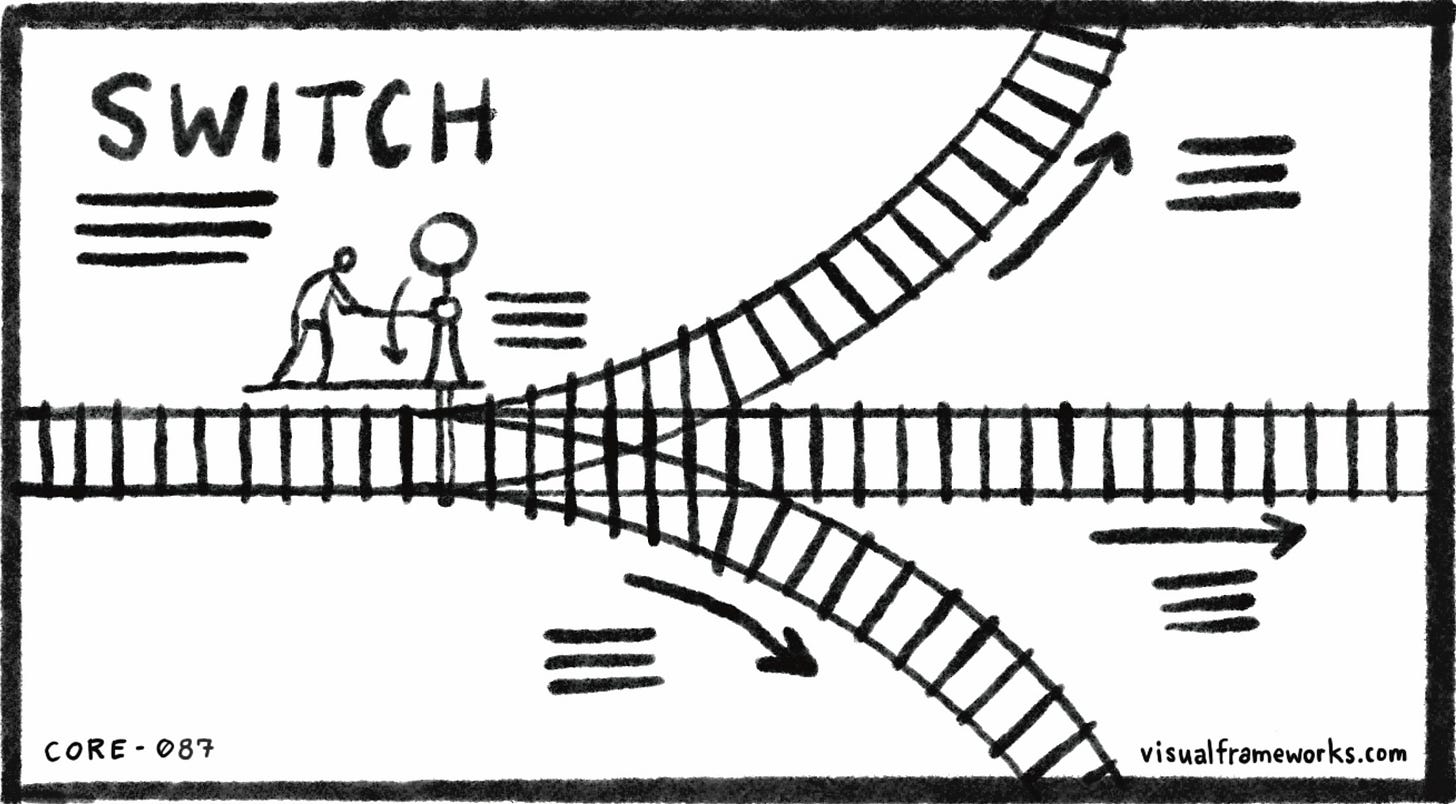Monday Memo #29
Act as-if.
The Monday memo is food for thought to fuel your week.
Hi everyone,
Much of what you “know” about the world is not really knowledge but belief. A belief is a theory about the world that you’ve developed over time, based on your experience. It’s a story you tell yourself about how to interpret events and situations, a way to understand what’s going on and decide how to react or respond.
But how do you know if your beliefs are valid?
Did you know that you can test your beliefs? Scientists do this with the natural world all the time, by developing hypotheses and testing them with experiments. And you can experiment too, even with aspects of your life that don’t seem like they would be scientifically testable.
You can try on a new belief, even a strange one, for a period of time to see what happens.
Let’s say that you think someone hates you. You can start by recognizing that this is not a fact, it’s a belief. It’s a theory you have created in order to explain certain kinds of behaviors. Maybe they frown when you enter the room, or ignore you when you say something you think is important. But there could be all kinds of reasons for this. Maybe they were having a bad day. Maybe they were preoccupied with something else when you spoke.
Many beliefs can become self-fulfilling prophecies. You imagine that they are true and then you act on the belief. When you act on your beliefs, there’s a tendency to reinforce them. For example, if you think someone hates you and you avoid them, or act in an aloof way, or any number of other things, you reinforce the belief, not just for you but for them. So by acting on your beliefs, you can make them come true, even if you don’t intend to. It’s the opposite of wishful thinking: a doom loop.
You’ll never know which theory is right until you start testing your beliefs.
One way to do this is to adopt a different belief for a period of time, and test the new belief by acting as if it were true. Imagine you had this belief, that someone hates you, and you set out to test your belief. Imagine that person liked and respected you. How might you act as if this were true?
How do you act when people like you? You could ask them to lunch. You could smile when they walk in the room, or wave when they walk by. You might ask for their advice.
If you want to test a belief, you don’t have to know whether it’s true or not. You don’t even have to believe it’s true. You can act as if it were true and see what happens.
Exercise.
Here’s your exercise for the week. Think of a belief you have about the world that’s problematic for you. Maybe you believe that something is impossible for you. For example, maybe you believe that you can’t write, or can’t draw. Maybe you believe that a friend doesn’t listen or doesn’t care about something you think is important.
Whatever it is, consider that belief carefully. Think about the experiences that led you to adopt the belief. Next, brainstorm some ideas for other beliefs. Other things that might, or could, be true. Consider adding some wild cards: things you might initially reject as preposterous or strange.
Now try on these beliefs on a temporary basis. How would you act if they were true? Suspend your disbelief for a second. Acting as-if can feel unnatural at first, like you’re operating in an imaginary world of your own construction. But that’s the secret. Your actions have a tendency to create the world that you live in.
If you imagine a better world, and act as if that world already existed, you can sometimes imagine that world into existence.
Is this just wishful thinking under a different guide? No. It’s a way to test your beliefs about reality by experimenting with different beliefs. Remember, you’re not adopting a new belief forever. You’re trying it on in order to test it. To see what happens. After the experiment, you can go back to your old belief, or keep trying on different ones until you find one that makes better sense of the world.
So think of a belief that’s problematic for you, imagine a different world, or better yet, imagine the many different worlds that might exist. Think about how your actions might change if you held different beliefs.
You can try out a new belief by suspending your disbelief and acting as if it were true.
See what happens.
Upcoming:


To kick off July we will hold a URL Roundup, hosted by
. Chelsea invites you to think about domain names you may have purchased but are not using. In the URL Roundup we will wrangle languishing concepts, showcase, share and vote on domain ideas, and think together about how we might get them out of the stable and off to the races!Bring your top two domain names that you think are your best ideas (even if you don’t plan to use them), or those that you feel the most energy around. Funny ideas absolutely welcome. if you don’t have domain names to bring, please join us anyway, to support your friends and to vote! You never know, you may bump into a cool domain someone else doesn’t want!
Share this invitation with any friends who have a domain purchasing problem ;)
Buy a ticket for the URL Roundup or become a member today for free access to all Collaboratories. You can also subscribe to Chelsea’s email list for updates on future uRL events.
Members get access to all Collaboratories as well as Collaboratory recordings, past and present, and our email archive. It’s only $20/month or $200/year. Become a member by upgrading your subscription.
As of this week we have 68 members. The first 100 members will lock in the $20/month, $200/year rate.
If you’re already a member, thank you. You’re making this possible.
More information for members is below the fold.


